Your Life
GO FOR COACHING GOLD
5 Olympic trainers share their top tips
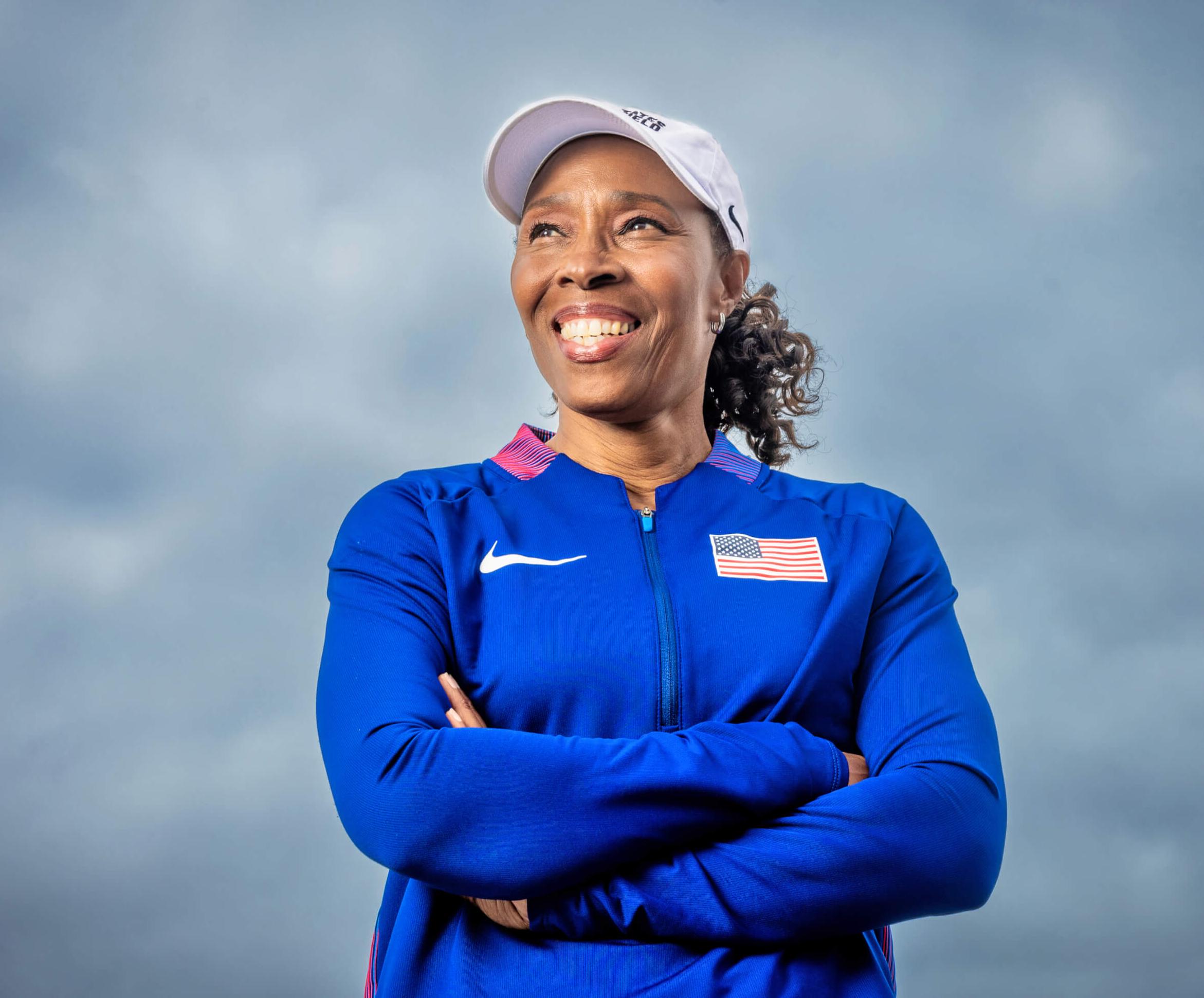
LaTanya Sheffield, Long Beach State University
America’s best athletes are set to compete at the Summer Olympics in Paris. To win a medal, each one needs a supportive coach, someone with the experience and wisdom to help them achieve success. These five Team USA head coaches share their advice for coaching at any level—from your own team to your kids’ or grandkids’ teams.
LaTanya Sheffield, 60
Women’s track and field
Background: Hurdler at San Diego State University and at the 1988 Olympics; coach at Long Beach State University
Her journey: Coaching was just like my whole track-and-field career. It found me.
In high school, I was a cheerleader. I hung out with the cheerleaders. Then all of my friends went to track, so I was like, “OK, let’s go.” Then my brother suggested that I try out for the track team at San Diego State. And I made the Olympic team. You never know where life is going to take you. I started to coach because of my daughters, who were in school. I just wanted to help out. I didn’t want to be “the Olympian parent.”
Her coaching philosophy: I am not a perfect coach, but during my journey from all levels—from youth athletics to high school athletics to collegiate athletics to world-class athletes—communication has been key. When I say communication, I mean from the receiver as well as the giver. You’re listening.
But share all of the life lessons and wisdom that you have. It’s so powerful. You’ve been there, you’ve seen it before. Tell them that you don’t want emotions to overtake the fundamentals to execute the task. You have to be able to maintain that emotion, your heart racing, so that you can perform when they say, “On your marks.” Athletes need to learn to be more on the even keel, not have the highest highs or also the lowest lows in the trenches of competition.
At Long Beach State, we are constantly meeting folks, young adults who will eventually lead our country. We’d better do it right.
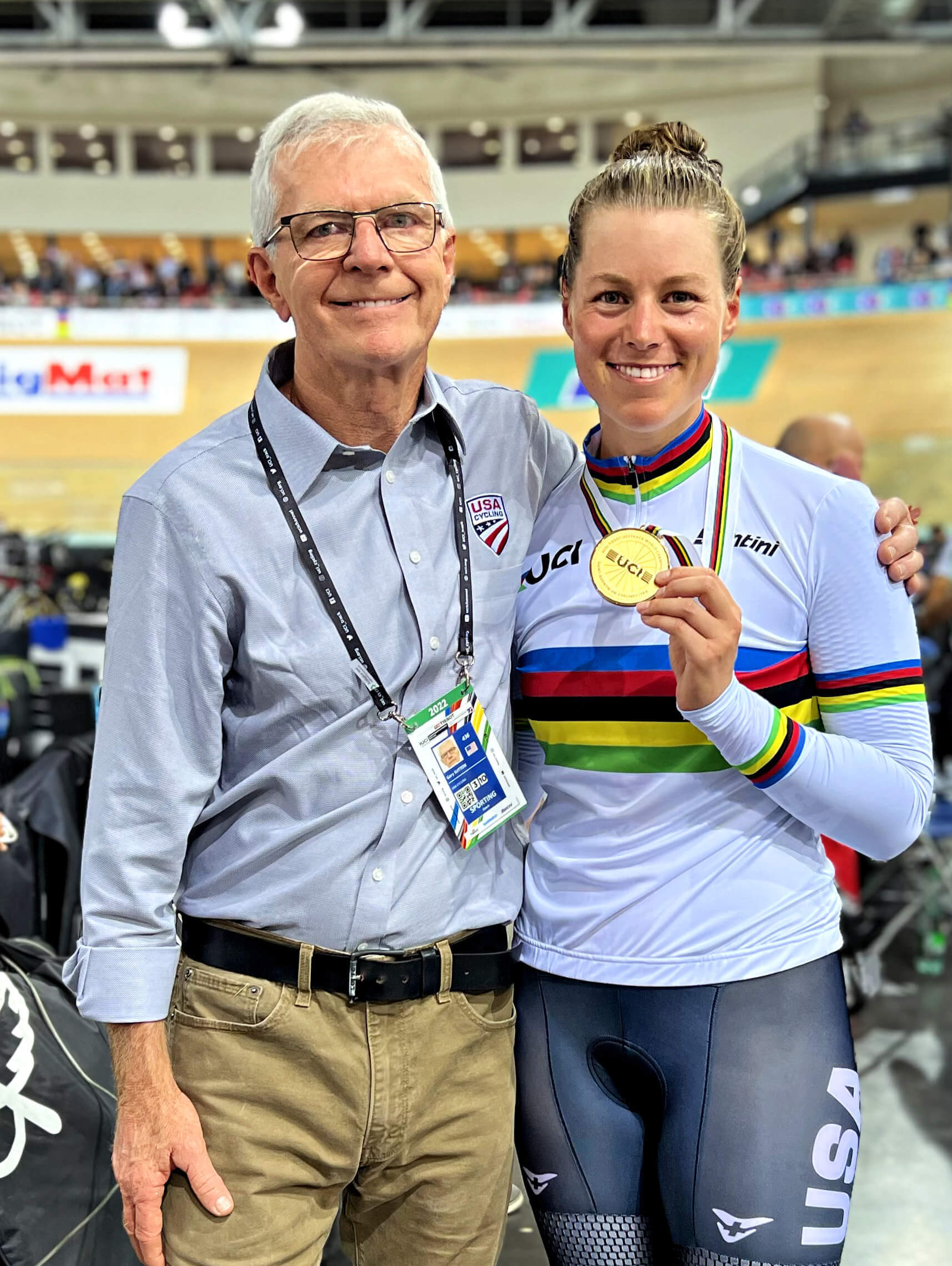
Gary Sutton, 69
Women’s endurance track cycling
Background: Competed for Australia at the 1976 and 1980 Olympics; was the Amateur World Points Race Champion in 1980; has more than 30 years of experience as a cycling coach
His journey: I just dreamt about going to the Olympics. When I finally did, I was presented with my national uniform. The first night, I slept in my shirt!
When I retired from competition, my old coach asked if I would like to try coaching. My vision was to open up a coffee shop and do something with my wife. Anyway, I started coaching, and it was full of challenges. I’ve always loved a challenge.
It would be fair to say that I make most of my best decisions when I’m riding my bike. It’s such a beautiful feeling, the wind on my face. I don’t answer the mobile phone. I don’t answer messages. It’s my own space. I learned from a coaching perspective, you need to give yourself a good one hour a day of your own time to yourself or to your family or to your wife.
His coaching philosophy: Every athlete is different. I think if you can challenge an athlete and get them to do something that they believed they could never achieve, it’s a turning point for the athlete—and for the coach. Getting the best out of the athlete is a wonderful thing.
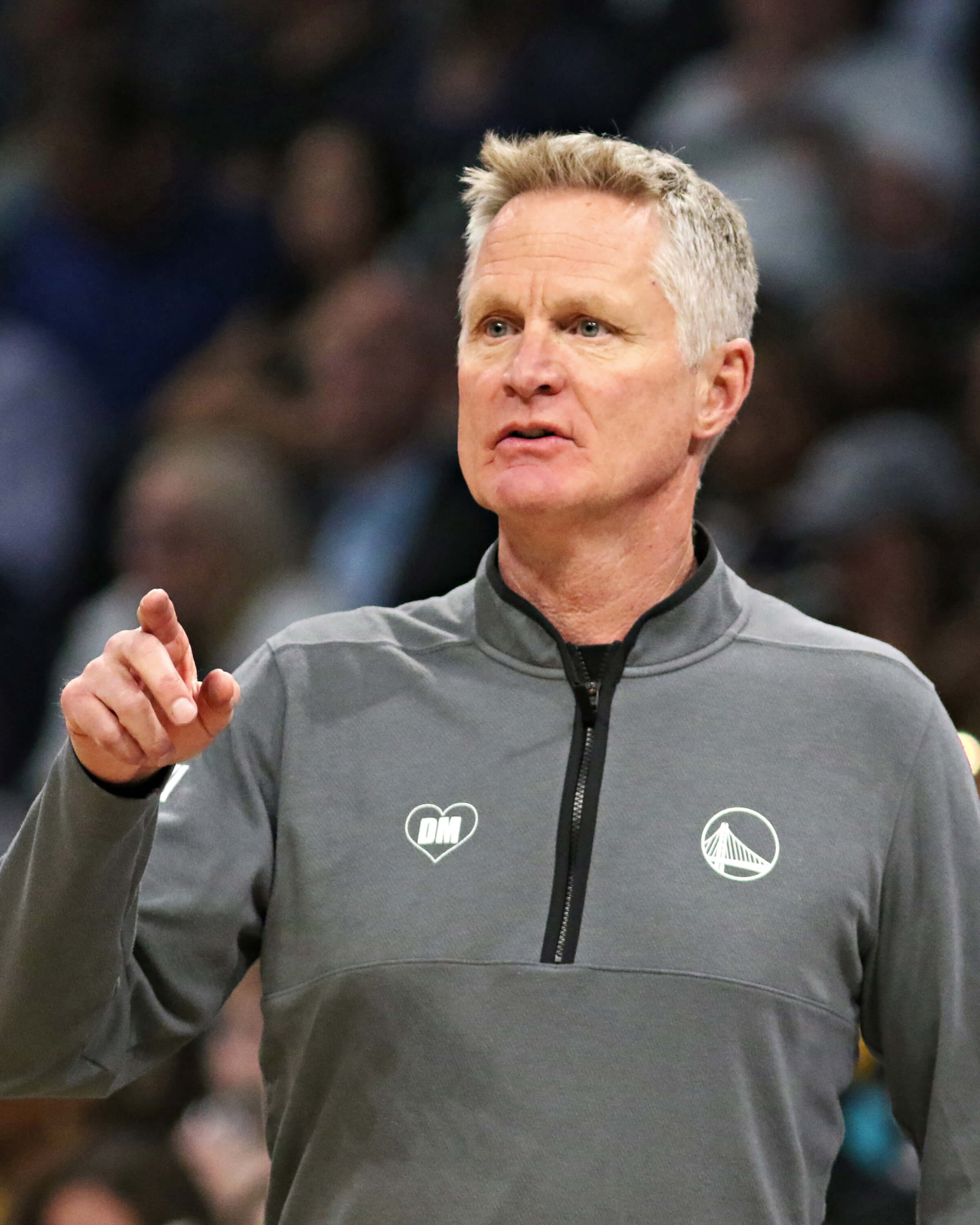
Steve Kerr, 58
Men’s basketball
Background: Five-time NBA champion as a player; four-time NBA champion as a coach with the Golden State Warriors
His journey: I was 6 or 7 years old and I went to a UCLA game. They were in their heyday. I just fell in love with it. All of it. The gym, the team, the crowd. I went to a John Wooden youth basketball camp, and the former UCLA coach was a legend. That’s when I started learning about the game and I knew I wanted to play basketball.
In the back of my mind, I always knew I would be a coach one day. I grew up in a family of teachers. Coaching and teaching are the same, so it came naturally for me. I waited until my kids were grown because of how demanding coaching can be.
I just missed a chance to play on the 1988 Olympic team. I made it to the last cut. Now being able to coach the team, it’s amazing. I wish I could still play, but my knees won’t let me.
His coaching philosophy: At this level, I coach the most talented players in the world, but even they have to know that you’re going to help them reach their goals and dreams. Then they will respect you. Players just want you to be supportive, even in pro basketball. That’s the most important thing. You can be demanding, but you have to be supportive.
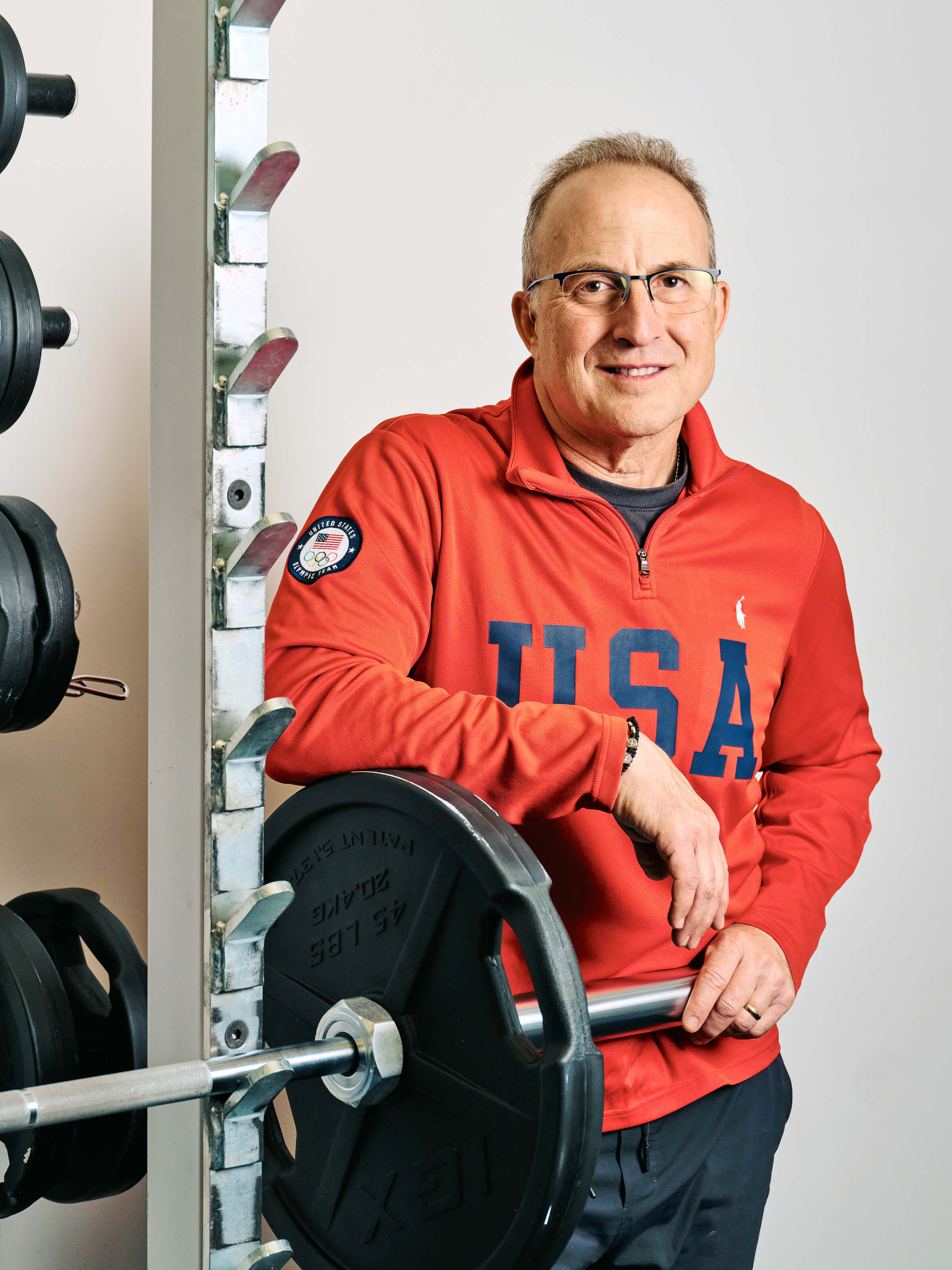
Mike Gattone, 60
Weight lifting
Background: Has worked as a weight lifting coach for more than 30 years; senior director of sport performance for USA Weightlifting
His journey: I realized early on that I was a strong kid but I wouldn’t be an Olympian. So I wondered how I could make weight lifting a big part of my life. That’s where coaching came in. My mom was a teacher. I studied physical education. I knew that teaching and coaching was going to be an avocation for me.
As I age, I read a lot about folks spending more time alone, especially when they’re not working. I’m thankful to be coaching and be around these young kids, who are fun. It’s nice for me as a coach to be in a social group.
His coaching philosophy: I love the relationships that coaching builds. I’m a pretty outgoing person, so it all fit in naturally for me. The first thing as a coach is to find that kind of unique, intrinsically motivated person who says, “This is my thing, and I’m going to give it my all. I’m going to go through the grind and do this.” That’s the first thing I look for.
Home support is a big deal. Even these Olympic-level athletes, although they are paid a monthly stipend, a lot of times they live at home, train in a garage or a CrossFit gym. You have to have a social support network.
And find your joy. I try to make practices for my athletes fun by doing different challenges. For anybody, if you want to be good at something, you have to find joy in that process, whatever makes you tick and makes you want to keep putting in the time.
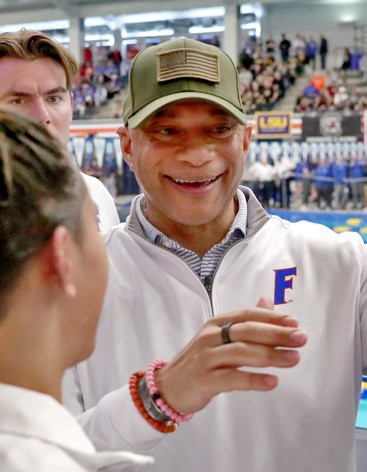
Anthony Nesty, 56
Men’s swimming
Background: Olympic gold medal winner in 1988 for Suriname, bronze medalist in 1992; coach at the University of Florida
His journey: My dad wanted me to do an individual sport. He thought of the discipline aspect. Individual sports are all about you and how much work you’re willing to put in to get the results. You have no one to blame if things don’t go right but yourself.
When I graduated college, my dad said, “Son, you’re on your own.” All I knew was swimming. I started coaching five days a week at my high school. I really started enjoying it, seeing the joy on the kids’ faces when they make improvements. Now, I’m starting my 27th season as a coach at Florida.
His coaching philosophy: Coaches have to bring the juice, or it’s going to be a long two-hour training. Kids look up to you, and if you bring the energy on a day-to-day basis, they are going to bring energy too.
There is a lot of competition in practice. I deal with 60 to 70 athletes; I know not everyone is going to get along, but they must respect each other. Practices are challenging, but when the athletes respect one another, it makes a big difference.
Everybody sees the good our athletes are capable of because they see them at their best. But it’s a roller coaster getting there. Such is life. But as coaches, the athletes make us look better than we actually are.
Kevin Spain is a sports journalist who formerly worked for USA Today.